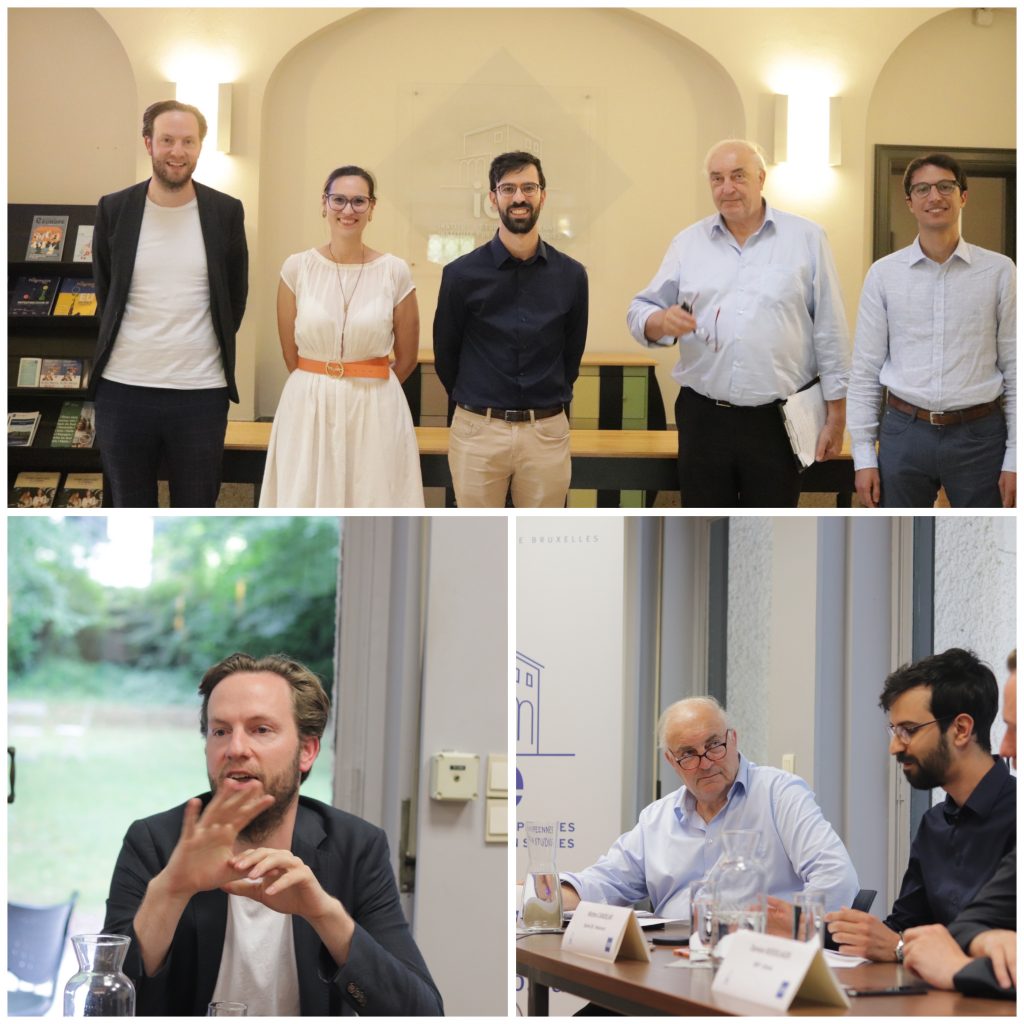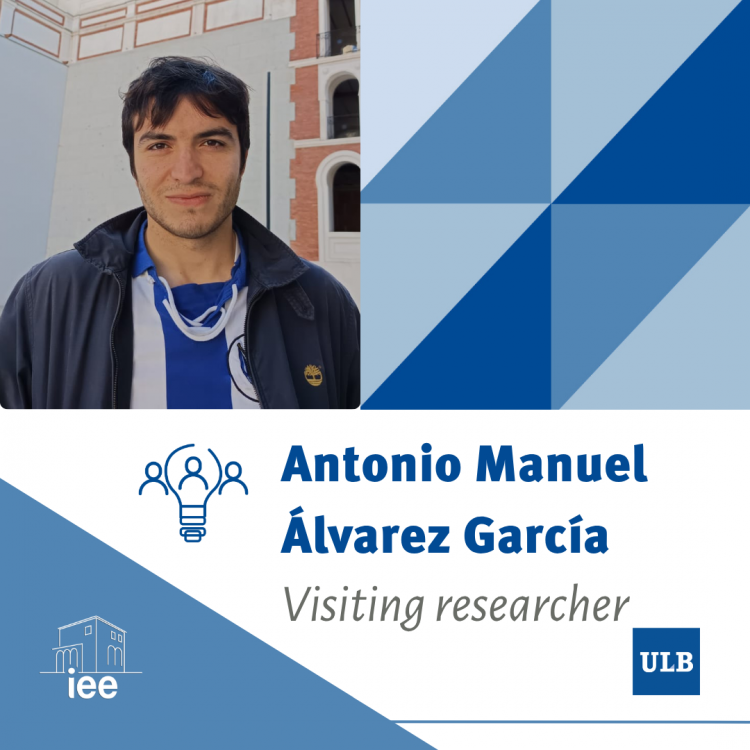 Matteo Candelari is part of the board of the IEE Alumni Co-Presidency. He earned a Master’s degree in European Studies in 2017. After his graduation, he worked on communication activities at smartEn. After this experience, he was a Social Media Campaigner for the European Greens during the 2019 EU elections. Matteo currently works as Programme Coordinator for Cycling Industries Europe.
Matteo Candelari is part of the board of the IEE Alumni Co-Presidency. He earned a Master’s degree in European Studies in 2017. After his graduation, he worked on communication activities at smartEn. After this experience, he was a Social Media Campaigner for the European Greens during the 2019 EU elections. Matteo currently works as Programme Coordinator for Cycling Industries Europe.
CoFoE: a starting point
The discussion kicked off analyzing the outcome of the Conference on the Future of Europe. Both Charles Goerens and Damian Boeselager agreed that the Conference was “a real success,” allowing many EU citizens to discuss with representatives from the EU institutions, sharing ideas on how to shape Europe’s future. This pan-European democratic exercise put forward a report on the outcome that includes 49 proposals to the three EU institutions. However, this meaningful participation mechanism is just a starting process and needs to be seriously followed up by EU policy makers, said MEP Goerens. Policy change is needed, insisted both MEPs, but that cannot always be achieved without treaty changes. On that aspect, the European Parliament has already expressed the will to change the treaties.
More integration moving forward
During the debate, the need for the EU to update and improve the institutional set-up to overcome the multiple crisis that the Union is facing and to allow the EU to play a leading role in the international scene was highlighted. It is fundamental to explain to national public opinions, the MEPs agreed, that only with more integration Europe can be prepared for the challenges of the XXI century. The EU is at a crossroads, pointed out MEP Boeselager: either we further develop the EU project, transferring more competencies and power from nation states to the European Union, or we continue with the intergovernmental system driving to deadlocks. Many Member States do not see the sense of urgency to move forward with more integration yet, but the urgency will be soon so blatant that even those reluctant Member States will have to change their minds and react to the current situation.
A Defense Union
On foreign affairs, it was pointed out that recent international developments, like the Russian aggression to Ukraine, have accelerated the need for a common European army and a common European defense policy. A defense union would save money, said MEP Boeselager, and would be more effective and resilient than keeping 27 different defense strategies and policies. MEP Boeselager suggested during the debate that having a common European army would raise issues such as who would oversee the command of such an army, making it necessary to have a form of “EU government” somehow elected and controlled by the European parliament, measures that would require radical Treaty changes. To have a stronger position at international level, the EU needs to step up and not rely solely on its soft power, said MEP Goerens, with a model where all member states contribute to the defense effort. “It’s up to us to act”.
The Rule of Law
The discussion ended on internal issues at the top of the EU agenda, such as violations of the rule of law in EU Member States and how to improve EU elections procedure.
For the speakers, the European Parliament should have more of a say on the breaches of rule of law occurring in Member States. If the European Parliament would be brave enough, it could challenge the EU Commission on that, pointed out MEP Boeselager, adding that unfortunately the Commission is too dependent on Member States, whereas the European Parliament hands are freer.
Regarding EU elections, transnational lists should be in practice for the next elections, making the Spitzenkandidat concept more credible and creating the conditions for a more accountable and effective EU decision making process. Furthermore, a European electoral law along with transnational lists would make it possible for EU citizens to vote for EU parties.
The alumni co-presidency
The debate, which was followed by a networking drink, marked the end of the second IEE alumni rotating co-presidency formed by Milena Albu, Ricardo Almeida, Giorgia Bozzini, Matteo Candelari, Matteo Guidi and Jessica Simoes. On 28 April, our alumni also hosted a debate on current events with Ambassadors Iulia Matei, Romania’s EU Permanent Representative, and Petar Markovic, Head of Mission of Montenegro to the EU, both graduates of the Institute. A new group of committed alumni will take over at the beginning of the 2022-2023 academic year.
The Institute thanks both Charles Goerens and Damian Boeselager for their participation and our wonderful alumni co-presidents for their active implication in IEE life.




